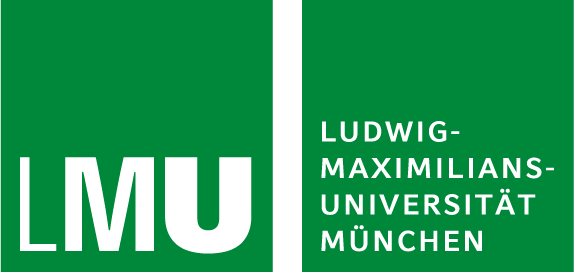Supervised Master's theses of Xiao-Ting Michelle To
Theses and projects (PhD, MSc, BSc, Project)
-
Investigating Evolving Ansatz VQE Algorithms for Job Shop Scheduling.
7
2024.

BibTeX Entry
@misc{leid24, author = {Daniel Alexander Leidreiter}, title = {{Investigating} {Evolving} {Ansatz} {VQE} {Algorithms} for {Job} {Shop} {Scheduling}}, year = {2024}, key = {leid24}, month = {7}, school = {Ludwig-Maximilians-Universität München}, supervisors = {Korbinian Staudacher and Xiao-Ting Michelle To}, type = {Masterthesis}, } -
Exploring the Potential of Filtering Variational Quantum Eigensolvers for Job Scheduling.
11
2023.

 PDF
PDF
Abstract
Job scheduling is a complex optimization problem with multiple variables, constraints, and goals. Solving such problems using classical computing can be challenging, since they are NP-complete and real-world instances can be quite large. Quantum computing is a promising solution, as it is theoretically faster than classical computing for certain types of problems. In this thesis, we use the filtering variational quantum eigensolver (F-VQE), a parameter- ized quantum algorithm, to solve a simplified real-world scheduling problem. The F-VQE algorithm optimizes solutions by filtering out unpromising ones and using a classical op- timization routine to refine the remaining solutions. Although the F-VQE algorithm is based on a paper by Amaro et al., it has not yet been fully evaluated for solving scheduling problems. While VQEs have been successful in solving combinatorial optimiza- tion problems, we seek to assess the performance of F-VQE in solving scheduling problems. We have two objectives in this research: firstly, to enhance and analyze the F-VQE al- gorithm, and secondly, to evaluate the potential of quantum computing in solving complex scheduling problems. To accomplish this, we will compare the performance of the F-VQE algorithm with other quantum and classical approaches for solving real-world scheduling problems. This will provide valuable insights into the effectiveness of quantum comput- ing for solving these problems, as well as identify potential improvements to the F-VQE algorithm. We delve deeper into the F-VQE algorithm to identify potential areas for improvement. We will examine various ansatz designs, different filtering strategies, and encoding techniques. Worthwhile additions are implemented and tested against. To compare the F-VQE algorithm’s performance with other variational quantum algo- rithms and an approach using Grover’s algorithm, which is already implemented by the DLR. We evaluate the efficiency, scalability, and quality of solutions provided by each algo- rithm and discuss the potential benefits and drawbacks of the F-VQE for solving real-world scheduling problems.BibTeX Entry
@misc{sajk23, author = {Wanja Sajko}, title = {{Exploring} the {Potential} of {Filtering} {Variational} {Quantum} {Eigensolvers} for {Job} {Scheduling}}, year = {2023}, pdf = {https://bib.nm.ifi.lmu.de/pdf/sajk23.pdf}, abstract = {Job scheduling is a complex optimization problem with multiple variables, constraints, and goals. Solving such problems using classical computing can be challenging, since they are NP-complete and real-world instances can be quite large. Quantum computing is a promising solution, as it is theoretically faster than classical computing for certain types of problems. In this thesis, we use the filtering variational quantum eigensolver (F-VQE), a parameter- ized quantum algorithm, to solve a simplified real-world scheduling problem. The F-VQE algorithm optimizes solutions by filtering out unpromising ones and using a classical op- timization routine to refine the remaining solutions. Although the F-VQE algorithm is based on a paper by Amaro et al., it has not yet been fully evaluated for solving scheduling problems. While VQEs have been successful in solving combinatorial optimiza- tion problems, we seek to assess the performance of F-VQE in solving scheduling problems. We have two objectives in this research: firstly, to enhance and analyze the F-VQE al- gorithm, and secondly, to evaluate the potential of quantum computing in solving complex scheduling problems. To accomplish this, we will compare the performance of the F-VQE algorithm with other quantum and classical approaches for solving real-world scheduling problems. This will provide valuable insights into the effectiveness of quantum comput- ing for solving these problems, as well as identify potential improvements to the F-VQE algorithm. We delve deeper into the F-VQE algorithm to identify potential areas for improvement. We will examine various ansatz designs, different filtering strategies, and encoding techniques. Worthwhile additions are implemented and tested against. To compare the F-VQE algorithm’s performance with other variational quantum algo- rithms and an approach using Grover’s algorithm, which is already implemented by the DLR. We evaluate the efficiency, scalability, and quality of solutions provided by each algo- rithm and discuss the potential benefits and drawbacks of the F-VQE for solving real-world scheduling problems.}, key = {sajk23}, month = {11}, school = {Ludwig-Maximilians-Universität München}, supervisors = {Korbinian Staudacher and Xiao-Ting Michelle To}, type = {Masterthesis}, }
Disclaimer:
This material is presented to ensure timely dissemination of scholarly and technical work. Copyright and all rights therein are retained by authors or by other copyright holders. All person copying this information are expected to adhere to the terms and constraints invoked by each author's copyright. In most cases, these works may not be reposted without the explicit permission of the copyright holder.

